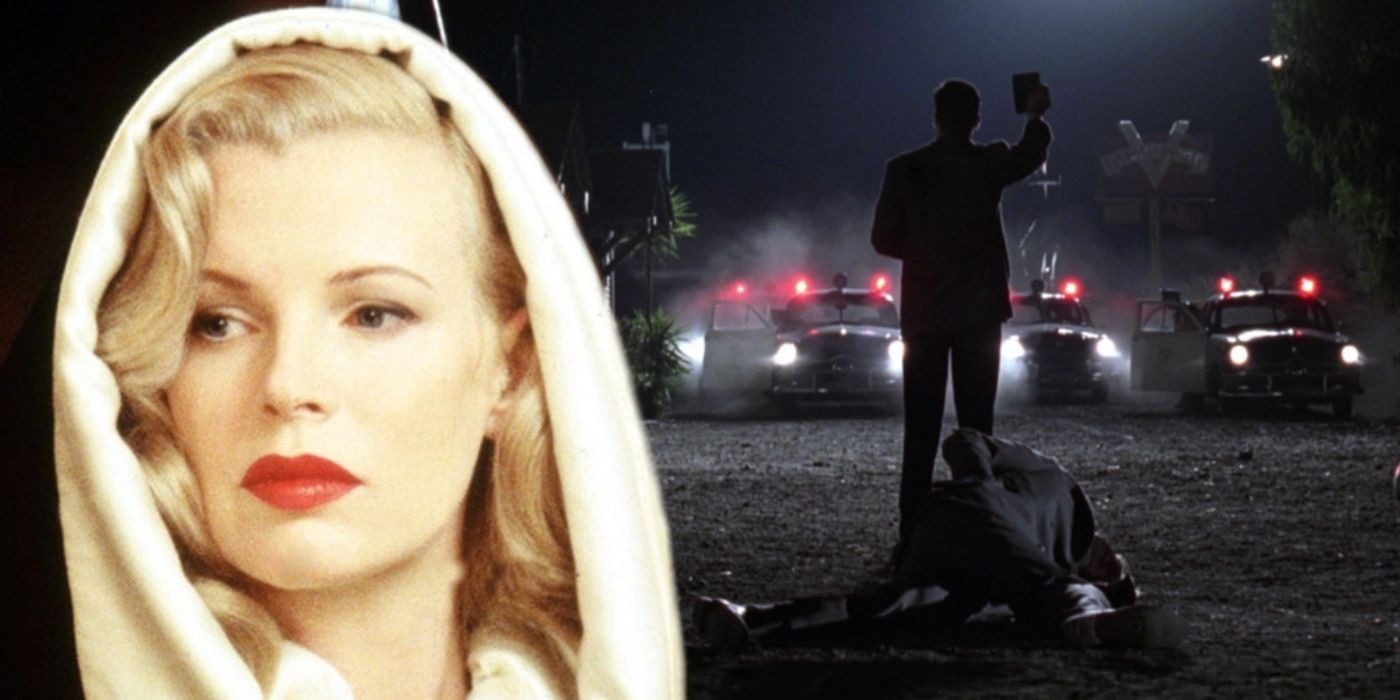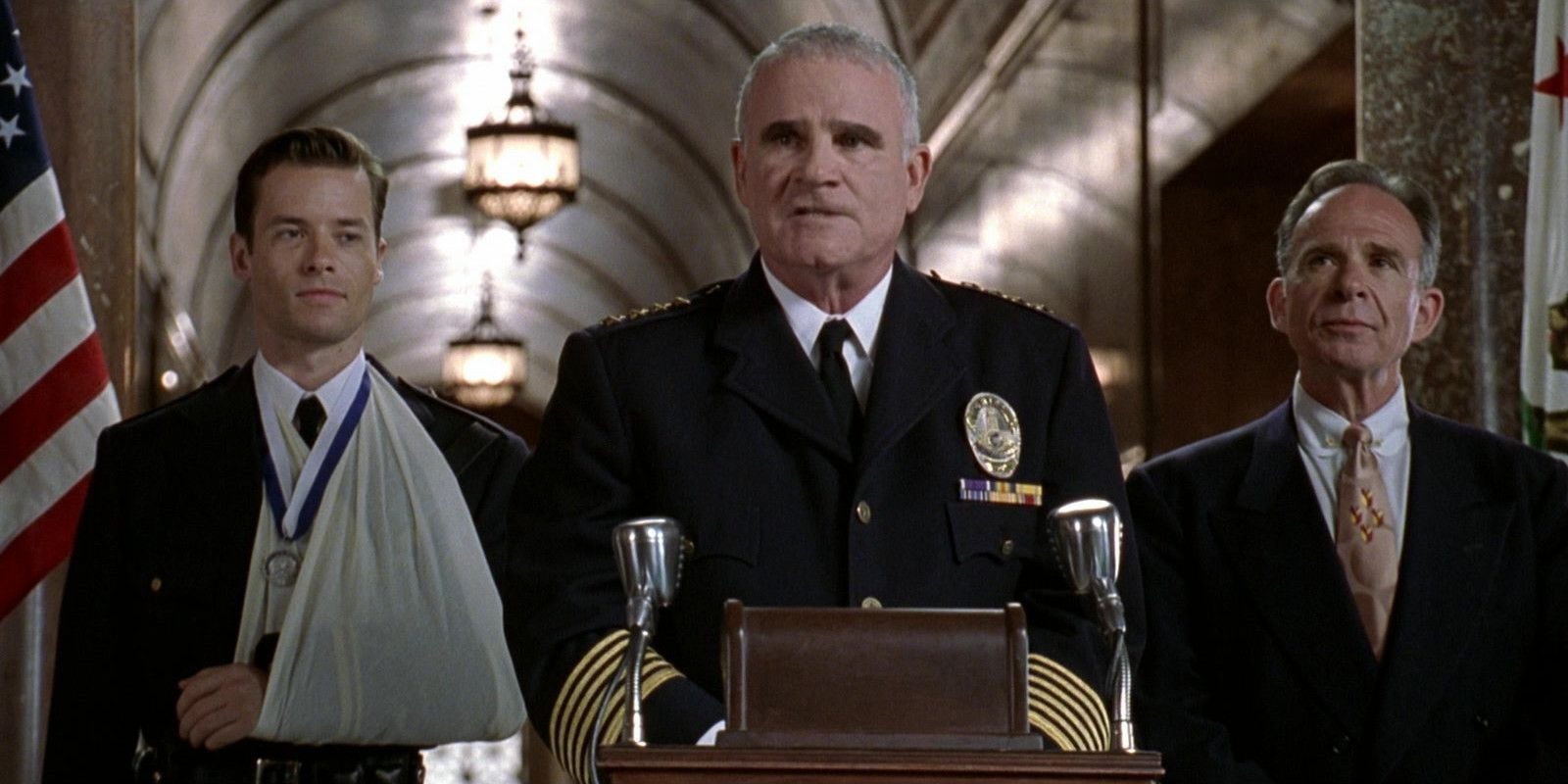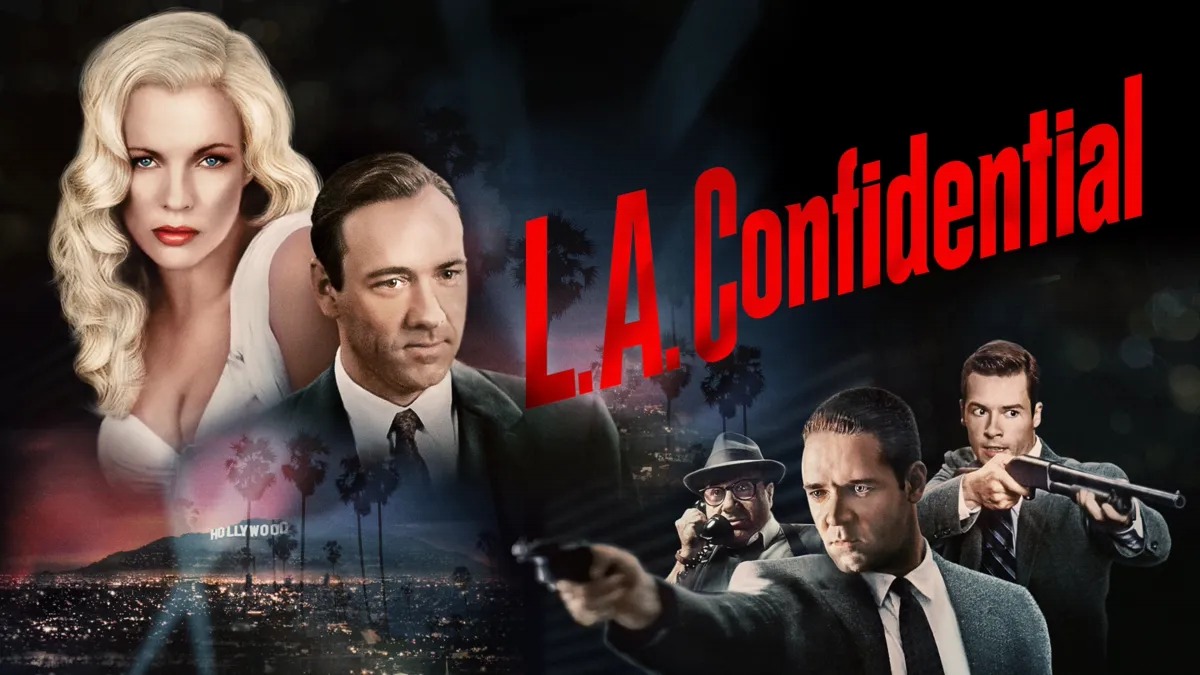Transporting audiences to the early 1950s, the film meticulously recreated the era and featured an ensemble cast reminiscent of film noir’s golden age from the 1930s and ’40s.
Starring Russell Crowe, Guy Pearce, Kevin Spacey, Kim Basinger, Danny DeVito, and others, the movie earned over $126 million at the box office and secured nine Academy Award nominations, including one for Best Picture.
The story unfolds in 1953 Los Angeles, where crime boss Mickey Cohen’s downfall sets off a chain of events that reveals widespread corruption within the police force. Following Cohen’s arrest, the officers tied to his payroll are eliminated, prompting a slew of corruption allegations against the LAPD.

Despite the turmoil, Sergeant Ed Exley seizes the opportunity to rise through the ranks. Promoted after appearing to solve the Nite Owl coffee shop murders, Exley remains unconvinced of his success.
Teaming up with Sergeant Jack Vincennes and Officer Bud White, Exley uncovers a conspiracy that implicates high-ranking officials, including Captain Dudley Smith.
What Motivated Exley to Accept the Cover-Up?
Edmund Exley, initially portrayed as a rule-abiding officer intolerant of corruption, undergoes a dramatic transformation. After surviving a climactic gunfight with Smith and his men, he surprisingly endorses the conspiracy to portray Smith as a hero who fought organized crime.
This turn revealed Exley’s nuanced motivations; while he appeared altruistic, his ambitions often served his self-interest. Exley’s strategic decisions, such as using his testimony to gain promotions and leveraging the cover-up to advance further, showcased his duality. His drive to climb the ranks overshadowed his earlier idealism, proving his actions were as self-serving as they were heroic.
Exley’s Relationship With Lynn Bracken
Kim Basinger delivered an unforgettable performance as Lynn Bracken, embodying a classic Hollywood icon with depth beyond the typical femme fatale archetype. Unlike the traditional noir trope, Bracken’s innocence stood out, although her role in a blackmail scheme raised questions.
When Exley confronted her for information, she seduced him, possibly under instructions from Patchett, leading to compromising photos taken by Sid Hudgens.
While Exley’s behavior in this scene seemed inconsistent with his ethical stance, it revealed his lingering resentment toward White, whom he had clashed with repeatedly.
Their earlier confrontations and Exley’s takedown of White’s partner, Stensland, highlighted their animosity, making the betrayal a calculated act of spite.
Rollo Tomasi’s Role in the Plot
The concept of Rollo Tomasi, introduced during Exley’s recounting of his father’s murder, symbolized a faceless criminal who evades justice. This fictional name, though initially a narrative device, became central to exposing Smith’s corruption.
The ambiguity surrounding Smith’s potential involvement in the elder Exley’s death added another layer of intrigue. While the film never confirmed Smith as the murderer, his ruthless methods and parallels to Tomasi’s ethos positioned him as a personification of Exley’s personal vendetta.
The ultimate confrontation between Exley and Smith symbolized Exley defeating the embodiment of corruption in his life, whether literal or metaphorical.

Patchett and Hudgens in the Conspiracy
David Strathairn’s portrayal of Pierce Patchett added a sinister dimension to the conspiracy. As the operator of the Fleur-de-lis escort service, Patchett exploited political figures for blackmail, aligning with Smith’s schemes to replace Cohen’s criminal empire.
The plot intertwined with the murder of Susan Lefferts and the use of Patchett’s service to manipulate officials like District Attorney Ellis Loew.
However, Patchett’s ambition and Hudgens’ involvement in exposing scandals eventually made them liabilities. In a bid to cover his tracks, Smith eliminated them, demonstrating how power struggles within the conspiracy sealed their fates.
Reflections on Corruption in the Ending
The conclusion of L.A. Confidential transcended a simple narrative about police corruption, delving into the pervasive and inescapable nature of systemic dishonesty. While Exley presented himself as the cleanest officer, his integrity was often a façade masking his calculated ambitions.
The film juxtaposed nostalgic elements of the 1950s with stark reminders of societal inequities, particularly for marginalized groups. Unlike typical police dramas that lean toward absolutes, the film occupied a moral gray area, reflecting the imperfections of justice.
Exley, Vincennes, and White each embodied a mix of greed and idealism, suggesting that corruption would persist, evolving to adapt to new methods of exploitation.



